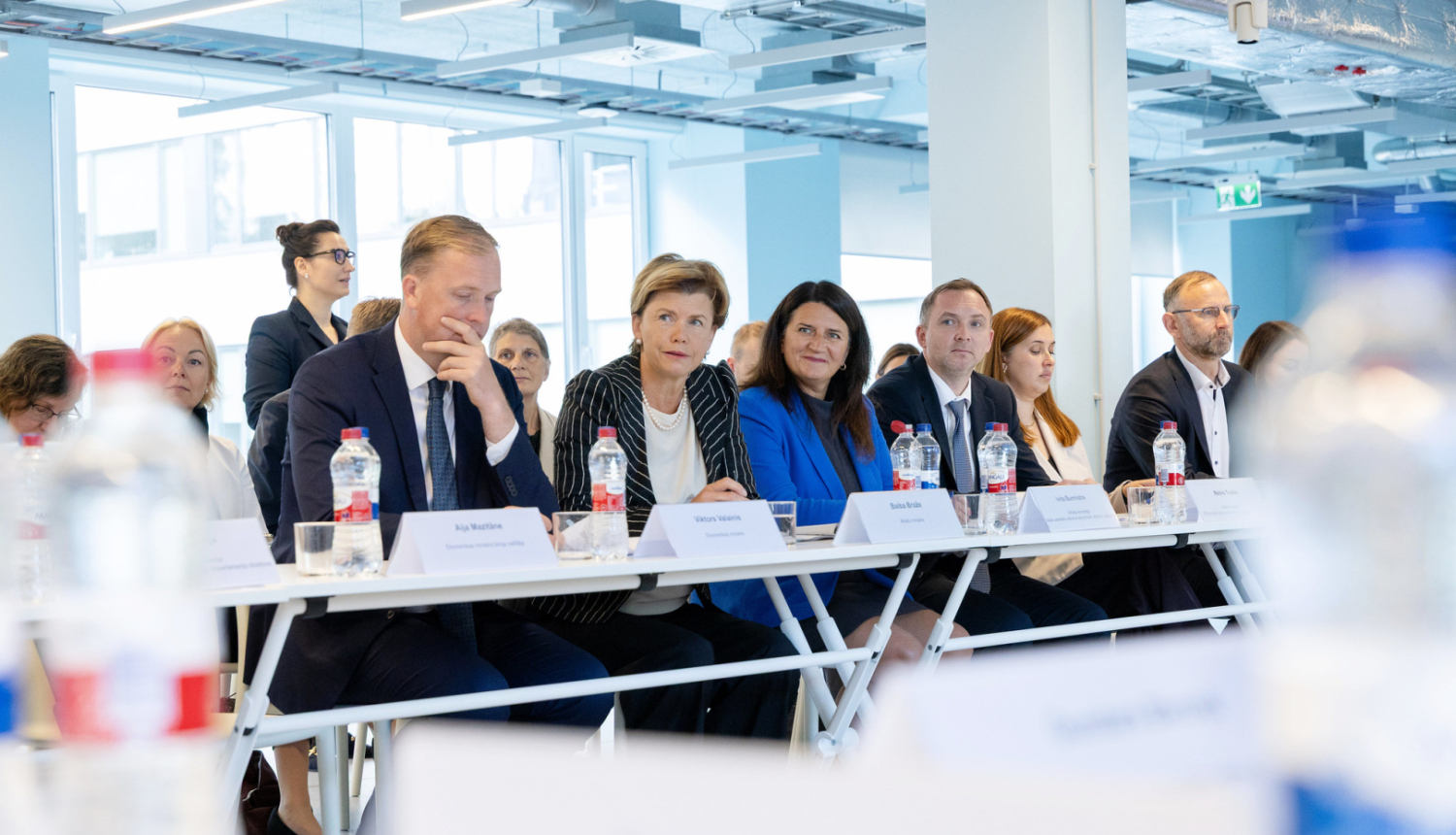Translated using ChatGPT service.
Latvia’s growth depends on the country’s ability to transform its economy from being labor- and resource-intensive to one that is based on knowledge and technology, emphasize leaders of science universities and research organizations. To achieve this, cooperation between industry and science must become closer, more coordinated, and purposefully managed, while also encouraging the inflow of investment into the development of strategic technologies, including semiconductors, biotechnology, and defense technologies.
The European Innovation Scoreboard shows that although the situation in 2025 has slightly improved, Latvia has still not realized its potential, outperforming only Bulgaria and Romania. Latvia’s economy continues to be dominated by low- and medium-technology sectors, labor productivity remains below the European Union (EU) average, and investments in research and development (R&D) significantly lag behind the EU level. Companies rarely take the risk of investing in early-stage technologies, growth capital is lacking, and state support for business R&D remains limited. Cooperation between science and industry is irregular and fragmented, commercialization of research results is slow, and there is insufficient coordination between ministries shaping science and innovation policy, pointed out Riga Technical University (RTU) Rector Tālis Juhna at the 22nd meeting of the External Economic Policy Coordination Council, held at RTU.
At the same time, scientific institutions and research organizations have much to offer in terms of technology, know-how, and scientific expertise for both Latvian and international markets in high technology, energy, innovative and personalized medicine, dual-use technologies, and many other fields.
Leaders of science universities and research organizations agree that a unified governance structure is needed to coordinate cooperation between science and industry, and to synchronize education and science policies with innovation needs. By implementing a knowledge economy approach, they propose to accelerate the adoption of research commercialization rules, introduce a more effective innovation policy governance model, define priority directions for state investments, implement a unified innovation policy, and establish measurable targets — such as public and private investments in research, the number of scientific start-ups, international patents and licenses, and the number of doctoral students. It is also essential to adapt oversight to market conditions. In addition, a sustainable financial model should be developed to incentivize research commercialization and to strengthen the capacity and efficiency of university technology transfer.
Foreign Minister Baiba Braže stressed that Latvia already has many good examples of science-intensive start-ups that have emerged in connection with universities or scientific institutions. Therefore, she particularly emphasized the role of academic staff and science universities in technology transfer and commercialization. Minister Braže also commended the work of the Ministry of Education and Science, RTU, and the University of Latvia (UL) in promoting cooperation with the U.S. space sector.
“Latvia has great potential in science and innovation, but until now we have not fully used it due to fragmented governance. The Ministry of Education and Science, together with state and science sector partners, has developed a proposal on how to improve governance in the commercialization of science and innovation. Today we had a valuable discussion about this at the External Economic Policy Coordination Council. I thank colleagues and partners for their useful suggestions — we will incorporate them into our proposal and move it forward for government review,” said Minister of Education and Science Dace Melbārde.
“The potential of science and innovation in Latvia is enormous, but the process is currently too fragmented and stuck. If we want to achieve faster growth, we must improve innovation and science commercialization policy — it must become much more purposeful, coordinated, and results-oriented. Latvia’s growth requires bold and clear action so that research and technologies can more quickly be transformed into products, services, and international success,” agreed Minister of Economics Viktors Valainis.
At the meeting of the External Economic Policy Coordination Council, after hearing the vision of science universities, ministers agreed that government-level action is needed to ensure faster and more effective decision-making on science commercialization, more efficient implementation of innovation policy, simplification of regulations, and significant reduction of administrative burdens, with greater trust placed in universities and other representatives of the innovation ecosystem.
The External Economic Policy Coordination Council is a collegial and coordinating institution established by the Cabinet of Ministers in 2012 under the leadership of the Minister of Foreign Affairs. Its aim is to ensure coordinated cooperation between state administration, various institutions, and the non-governmental sector in order to successfully design and implement external economic policy.
The 22nd meeting of the Council was chaired by Foreign Minister Baiba Braže and attended by Minister of Economics Viktors Valainis, Minister of Education and Science Dace Melbārde, Minister of Finance Arvils Ašeradens, Minister of Transport Atis Švinka, Deputy State Secretary of the Ministry of Agriculture Juris Zīvarts, Mayor of Riga Viesturs Kleinbergs, as well as representatives of the Chancery of the President of Latvia, the Latvian Chamber of Commerce and Industry, the Employers’ Confederation of Latvia, the Investment and Development Agency of Latvia, RTU, the University of Latvia, the Latvia University of Life Sciences and Technologies, the Latvian Institute of Organic Synthesis, and the Latvian Space Industry Association.




